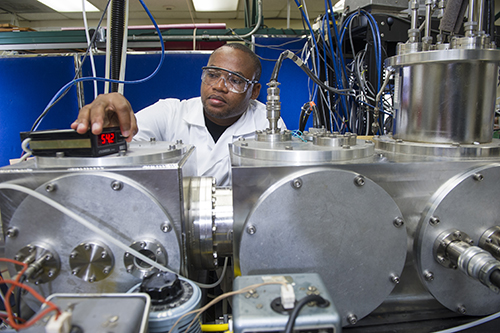College seniors graduating in 2021 had a challenging finish to their undergraduate education. During a pandemic-disrupted senior year, students’ career planning and preparations for entering the workforce were significantly altered, internships were cancelled or changed to remote, and on-campus hiring events were nixed.
Seniors responding to the 2021 National Survey of Student Engagement (NSSE) and its new Career and Workforce Preparation (CWP) Topical Module provide a glimpse of their exposure to college and university career planning resources, career exploration in the curriculum, confidence in work-related skills, and post-graduation plans. Administered between February and May 2021, the NSSE CWP module captured the views of nearly 30,000 seniors from 91 colleges and universities.
Survey results demonstrate that even during the pandemic, most seniors (71%) had a clear idea about their career plans, and a majority (76%) judged what they learned at their institution relevant to their career plans. For this short blog piece, we chose to focus on seniors’ responses to the open-ended question:
Is there anything this institution could do better to help students develop their career plans or gain work-related skills? Please describe.
We further narrowed our review of 5,230 seniors’ written responses to two salient themes. The first theme highlights comments that broadly captured the impact of COVID-19 on seniors’ career plans. The second theme draws attention to the efforts of faculty and staff that students found helpful.
Pandemic-Altered Career Planning & Preparation
Seniors’ comments about the impact of the pandemic largely reflect what we’ve heard anecdotally and would expect, including expressions of a disappointing senior year, concerns about cancelled career fairs, and worry about entering an uncertain job market, among others. Seniors who missed the opportunity to take expected hands-on courses in technical production, nursing, or in labs, were particularly disappointed that these courses had to shift to online.
As one senior said, “The biggest challenge was the effect that COVID had on biological lab classes. I had an entire class that I was highly interested in ruined due to not being able to attend trips or gain field experience.” Another senior elaborated on frustration about “virtual classes” and not being able to “stay after class and develop relationships with instructors who had real-life experiences and who could provide advice and direction.” Yet, other seniors appreciated an increase in industry professionals zooming into classes. One commented, “I think our coursework became more rooted in reality once COVID happened.”
The pandemic changed career advising, with more students utilizing online campus resources and job search websites, rather than in-person fairs and networking opportunities. Students expressed gratitude for these online services, offering kudos for institutions that expanded online career advising, offered virtual internships, and hosted innovative online career networking.
Helpful Faculty and Staff
Seniors largely expressed understanding about necessary adjustments for health and safety required by the pandemic. Comments emphasizing the helpful efforts of faculty and staff demonstrate the good work going on, and also suggest what institutions could do better to facilitate seniors career plans. “My wonderful professors helped me learn more about graduate school and the field I am looking into.” Another senior praised their university:


